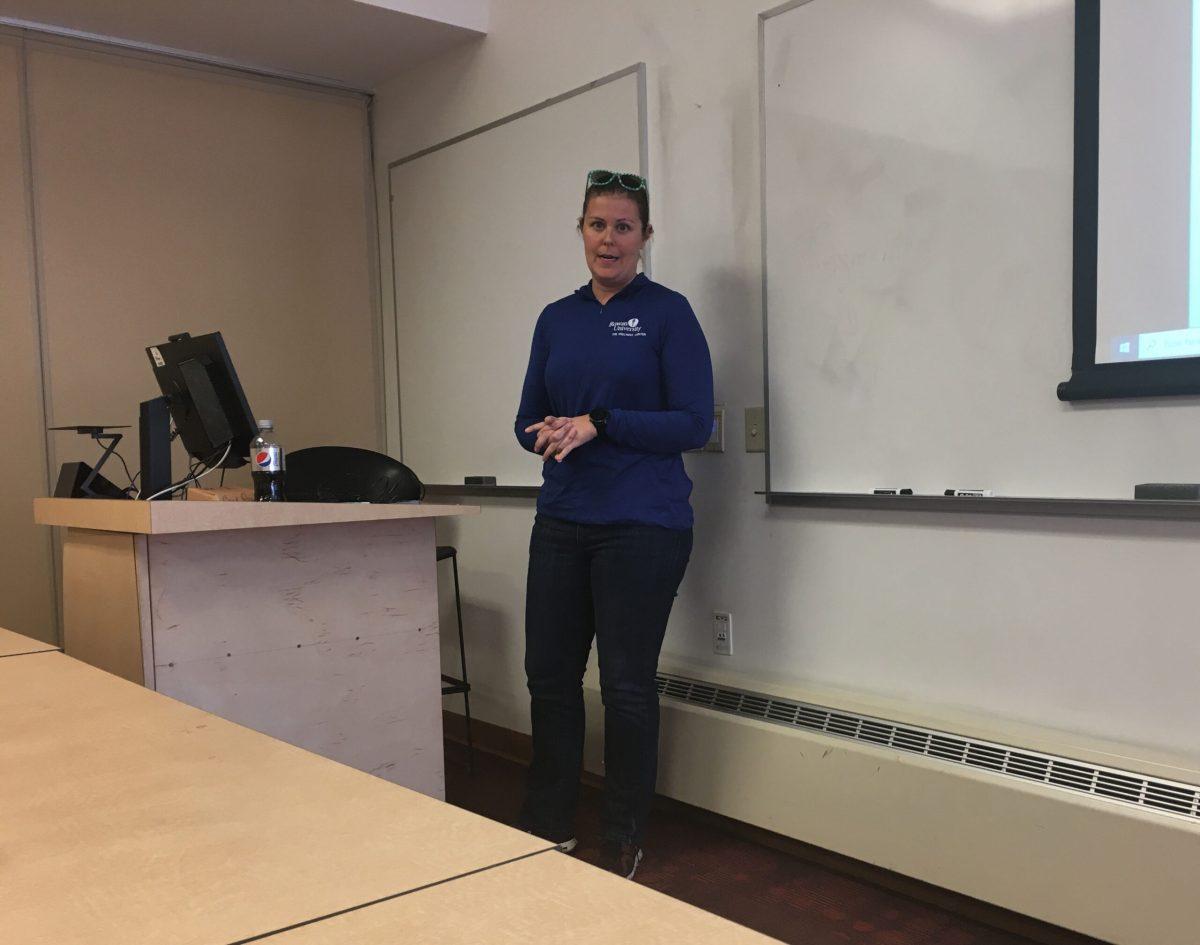A suicide prevention training class was led by Allison Pearce, the assistant director of Healthy Campus Initiatives at the Wellness Center, on March 8. The class utilized the QPR Institute, which stands for Question, Persuade, Refer. The website reports that the QPR model of intervention for those with suicidality can be similar to the effect of CPR in the event of a public cardiac arrest incident.
“I’ve been thinking about going into school counseling or field work with psychology… as somebody who has had people come to me in my life and address that they’ve been upset about things like this or knowing people that have attempted suicide and just knowing going forward, I can be in a position to change that feels pretty awesome,” said Jordan Ott, a Rowan University student in attendance.
The training goes into detail on how if a person is suspected of being in crisis they need to be questioned about any possible thoughts of suicidality, persuaded to stay alive through the offering of hope in any form, and referred to professionals such as therapists and counselors for in-depth and specialized services.
The university hosts this training in the Wellness Center monthly or bimonthly, depending on what schedules and staffing permit. The campus has three certified trainers to teach the QPR process to the Rowan community, though one of those trainers is currently out on family leave. The county has also partnered with the campus at points to aid in the instruction of the prevention training.
Through the COVID-19 pandemic, the Wellness Center was able to obtain permission to hold the training online from the QPR organization.
“Everyone on campus whether you’re students, faculty or staff should take this class,” said Karen Graham, an administrative assistant for the department of biological and biomedical sciences who was in attendance at the class said.
The training took care to detail the number and variety of resources available to those in need or those who know someone who is, as well as the ways those resources could be contacted and obtained.
“My fear is that people feel like they don’t have access to crisis services and they do. That’s what I want to make sure that students and faculty and staff know is if you are in crisis, you will be seen,” said Pearce.
These resources include peer support like “Chill N Chat” hosted on Fridays at 11 a.m. and the “Stress and Anxiety Student Support” group hosted on Mondays at 2 p.m, both in the Wellness Center. There is group counseling that is hosted on weekdays in the Wellness Center, as well as the “Let’s Talk” program which allows students to speak with a professional quickly without committing to ongoing treatment unless needed. Services also include individual counseling and crisis services like 911 the National Suicide Hotline at 988 and students have the ability to call the Wellness Center or Public Safety at any hour to reach a counselor.
Lesser known resources like the university’s free non-urgent EMS transport, which will drive students anywhere in a 15-mile radius to get care or prescriptions, was also mentioned at the training.
For comments/questions about this story tweet @TheWhitOnline or email [email protected]























































































































































!["Working with [Dr. Lynch] is always a learning experience for me. She is a treasure,” said Thomas. - Staff Writer / Kacie Scibilia](https://thewhitonline.com/wp-content/uploads/2025/04/choir-1-1200x694.jpg)











































